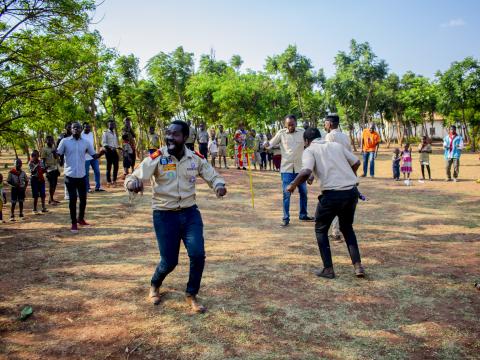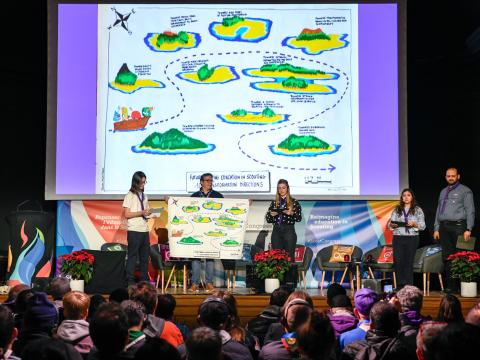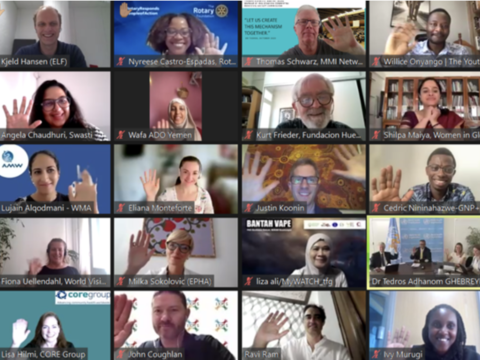Pioneering Mental Health Education Through Scouting
In India, a young nation with over half of its population under 25, there's a growing worry about mental health among young people. Did you know one out of every three Indian youths has a limited understanding and often negative views about mental health issues? Even more concerning is that one in five has stigmatised people facing mental health challenges. This issue is made worse by stress from school, the use of substances, and problematic internet use. There's a big need for education and support around mental health.
But this isn't just an issue in India. Young people all around the world are facing similar struggles with mental health and the unfair judgment that often comes with it.
That's why World Scouting is excited to start our Health and Well-being Initiative under Scouts for SDGs. Our goal? To help young people everywhere understand and take care of their health in every way – this includes mental health, healthy lifestyles, personal safety, and sexual and reproductive health.
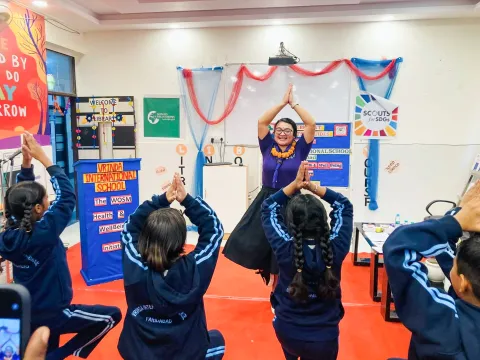
Scouting for Mental Health: World Scouting's Pilot Activities in India
On November 20th 2023, we were thrilled to pilot the Mental Health Challenge activities which young people will be able to take on in the upcoming Health and Well-being Initiative. The Bharat Scouts and Guides invited World Scouting to launch the pilot test at Vrinda International School in New Delhi, India, with 60 students and their teachers.
By trialling it within a school-based initiative, we had the opportunity to bring these programs to teachers and schools in the area, trial it with boys and girls within and outside of Scouting, and get vital feedback to help us improve the activities before launching.
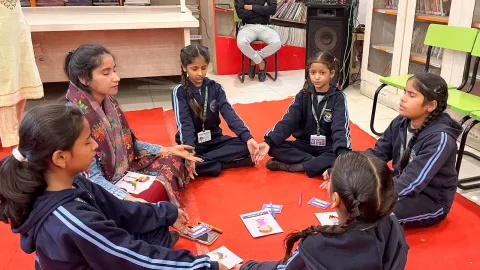
Engaging Teachers and Students in Mental Health Education
We started the day with a quick training for ten primary school teachers. We introduced the activities and how they can facilitate them and create a safe space for conversations and learning on mental health.
“Given that the pilot took place on a Monday morning, we thought the students might be tired and lack motivation. But they proved us wrong! Throughout the activities, both teachers and students were highly engaged, increasing their comfort throughout the sessions until we heard a lot of reflections and feedback from everyone. It was inspiring to see the activities come to life, and we can’t wait to bring this to more Scout groups and schools!”
- Monse López, Consultant on Health and Well-being, WOSM
Then, we moved on to the activities with their students. Throughout the day, we ran 2.5 hours of activities with one group of 30 students ages 8-10, and then another 2.5-hour session with 30 students ages 12-14. The activities were the same with adaptations for the older students who could handle more complex concepts and reflections.
We tested five activities:
- Introductions: Each student talked about what that represents them, how they are feeling, and what they feel grateful for
- Feelings: Talking about feelings through mimicking emotions with flashcards
- Mindfulness: Artistic expression and mindfulness through colouring mandalas
- Gratitude: Students wrote what they are grateful for on a ribbon and tied it to a rope to hang in their classroom
- Movement: Yoga and meditation poses

“Mental Well-being is Important and Can Be Fun” — Students and Teachers Share Positive Feedback
When students were introducing themselves and talking about the feelings they experienced over the last week, one young participant shared that, while she is close friends with a few girls in the class, she hadn’t even realised that one of them was feeling sad recently:
When it came to the yoga programme, students shared that hadn’t typically viewed gym class or exercise as something that could be fun, but through the yoga and play activities, they could smile, laugh and relax while moving their bodies. They gained a better understanding of how physical movement is connected to their mental well-being — and most importantly, that movement can be fun!
As professionals, and with extra support from World Scouting, the teachers did an incredible job of reinforcing a safe space for students. The teachers shared their feelings honestly, too, to ensure that the children felt safe and open to express theirs. For example, one teacher talked about feeling sad about missing out on a family event the previous week.
Over the 2.5 hours, we witnessed the room open up as more and more students shared their honest experiences and reflections. They related to each other and asked great questions, creating an overall eye-opening experience for students, teachers and World Scouting.
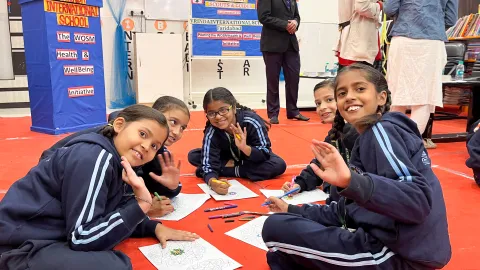
Next Steps: Mental Health Pilot Activities Coming to Four More Countries
In India, the pilot programme will continue to grow with eight Scout Groups taking on the Mental Health Challenge early this year. Beyond India, pilot tests are confirmed in Honduras, Colombia, Tanzania and France for early this year, with more additions expected in the coming months.
The idea is to launch the Health & Well-being initiative and challenges later this year, once we’ve integrated feedback from these pilot programmes with young people and adult leaders from various backgrounds, cultures and ages.
The pilot tests wouldn't be possible without the engagement of WOSM’s volunteer consultants who are supporting National Scout Organizations to implement these activities. For example, Madhusudan Avala, an Indian WOSM Consultant, is helping integrate the Mental Health Challenge in the Bharat Scouts and Guides and schools across India. In total, World Scouting currently has 16 services run by volunteers to help test and implement activities related to Health and Well-being and Life Skills, the two newest badge families coming to Scouts for SDGs.
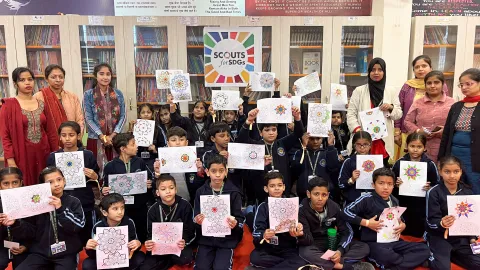
---
This project is implemented as part of the Scouts for SDGs global initiative, thanks to the longstanding support and partnership of Alwaleed Philanthropies via the World Scout Foundation. Scouts for SDGs enables young people with skills for life and empowers them to take the lead in community development efforts to support the achievement of the Sustainable Development Goals (SDGs).
